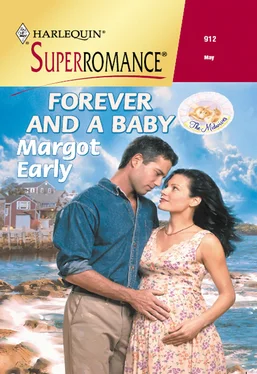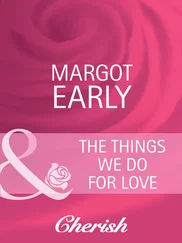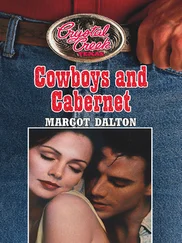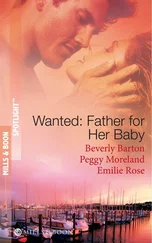Dad told me of another fall, one that happened earlier, a plane falling from the sky over the desert and one crew member escaping, floating to the ground with his precious silk. The soldier had hiked, lost until he met a Bedouin boy paused in the shade of a camel. The camp of twelve families had been slaughtered by tanks. Bloating camel carcasses and dead salukis lay near the collapsed tents. The soldier covered his nose and mouth with his bomber jacket to keep from vomiting at the stench.
Nonetheless, the boy greeted my grandfather in a tribal dialect and rushed to a demolished tent. He made coffee, insisted that my grandfather sit against a camel saddle, and behaved as though the carnage did not exist. When his guest would drink no more, the child showed him his father’s body, and it was the body of the sheikh. Working till dusk, they buried each person, seventy-one bodies, in a shallow grave in the sand, placing stones at the head and feet, leaving any intact garments on the graves for the less fortunate. Next morning at dawn, they saddled the camel. The boy knew what they would need and took the little he could of his family’s wealth. Before he left the graves of his loved ones, he bowed against the sand and prayed.
He and the American soldier crossed the desert, walking northwest to the coast, milking the camel to quench their thirst. Many times, the boy spoke his name and the name of his father and grandfather and his great-grandfather and his tribe. It was his entire name, a proud name. My grandfather agreed to call him Omar and sent the eight-year-old Bedouin ahead of him to Nantucket Island to become his second son, although the name Omar means “first son.” When my grandfather came home from the war, it was the dark boy he lifted in his arms and held as he embraced the others. They became a family of five. My fisherman grandfather, my midwife grandmother, Robert, Omar, and, briefly, baby Mary Hall. Then, my grandmother fell.
When my father first told me these stories, I had played with dominoes but still didn’t understand the nature of falls. I’d learned that midwives helped women have babies, which meant they were like doctors or nurses—not partially your wife and partially mine, as the name implied. I never guessed the part these falls—a soldier falling from the sky, his wife falling on her head—had played in my existence. Or that other falls in my life would so shape my destiny.
That I could be one of the fallen.
There are many ways to fall.
WHEN I MET with my father’s brother, Omar Hall, in Nantucket in early March of the year of his death, I had not seen his wife, Dru, for two decades. At that time, I had not heard her remark about the lies ancestors tell. My father lay dead nine weeks and three days.
Omar—he never encouraged “uncle”—and I spoke in the garden behind his home, the Federal-Greek Revival on Orange Street. Spruce and pine, the ivy-draped fence, the waterfall of unawakened climbing roses, all edged the long garden with its terraces, its beds with the green tips of bulb leaves emerging, other blooms dormant around the wintered lawn. We had privacy, the kind you can buy. Or he could.
His man, Sergio, had led me through the house to the garden, where Omar himself had held back the two long-legged dogs, gazelle-chasing desert sighthounds, one sand-colored with white stockings and chest, the other blue brindle. I knew both. I’d brought them from Mali, for Omar’s wedding gift to Dru.
While the hounds galloped down the long, deep yard, leaping and floating in mesmerizing fairy bounds, Omar brought me a beer and glass, offered me food. I’ve accepted coffee from faces like his in desert tents and in mud and stone houses of powder-puff colors. In him, the Bedouins’ sacred respect for a guest was warmth, a face that lit up as though this was the Libyan Sahara. Instead of an island soggy as a whaler’s death.
This was his hospitality. Years earlier, Omar had bought a mansion on the shore near Broad Point, hoping all his family and extended family, distant cousins included, would come to live with him. When he asked one of those distant cousins to marry him, when he asked Dru, she came—the only one. He and Dru sold the mansion and bought this house, two doors from her childhood home, with a yard for their dogs.
Omar and I stretched out our legs, half-turned from his round iron table, mismatched with plastic chairs. I wore my grandfather’s World War II bomber jacket, which Omar had presented to me on a visit to Cambridge when I was a teenager and old enough to notice my own father’s lip curling over the gift. But then, Robert Hall had relaxed and said, Looks good on you, Ben. And you’re named for my father. It should be yours. So it was always his and mine, never Omar’s, never the Bedouin boy’s.
In his herringbone overcoat, Omar scooted his chair closer to the table. He blushed. His smile showed embarrassment and pleasure. “My wife has a mission this summer, Ben. She is to search for a man whose child she would like to bear and arrange a tryst with him, for the purpose of conceiving a child who will be ours.”
The paler dog, Femi, circled the brickwork haughtily, stepping like a cat.
Arrange a tryst…Purpose of conceiving…His words caused a wound. No, something more complex.
The financier’s eyes curved, wrinkles kind. “Good. You’re not surprised.”
“I’m a journalist. I’m surprised.”
He laughed.
I didn’t.
The encapsulated Omar Hall: Son of a Bedouin sheikh, brought to America after the death of his family, adopted by my grandparents, their own deaths five years apart. Establishment in investments, speculation in hedge funds, marriage to distant cousin Dru Haverford, not of the Haverfords, also cousins, but of quiet poverty, they said, and young and beautiful. A midwife. A serious mountain-biking accident—his—on their honeymoon. During his marriage, Omar had become a global philanthropist, dropping a hundred million here, a hundred million there, every year.
Dark olive skin like a fine grade of sandpaper folded over the rigid white collar of his shirt. His eyes were black as mine, eyes like my ancestor Nudar’s. “Tell me why you’re surprised,” he said. “Let’s talk.”
Talk? “You can start.”
“Do you know my age, Ben?”
“Sixty-six.” According to Fortune. I reached for my glass. Talk.
“Dru is thirty-one. What do you suppose our marriage is like?”
The beer went down. A breeze brought a taste of scallops and salt water and brine. Everything wet, the gray air soaked in the sea. The damp suffocated me. So much water. The dogs collapsed at a distance. I still saw an eleven-year-old Dru at a Nubian oasis, water slipping through her hands beneath her ghost eyes. She was the one who’d been seized by the jinn, and the women danced to placate the demon. The rest of us went on, in our own ways. I found a scorpion. Tristan found a tribe. Skye found an Australian backpacker.
“Every marriage is different,” I said. Even in the desert. The nomadic Bedouin, occasionally with an extra wife. The Tuareg and their brides. An anthropologist and a minister’s daughter. A lone American journalist in a hundred-and-thirty-degree sun…
Omar smiled. “You’re diplomatic and wise. Dru and I are happy.” A pause—because of dissembling or curiosity? A pause that made me wonder which. “How are you?”
“Well.”
Omar’s forehead formed crevasses. He looked the same on the cover of Money. Then the lines smoothed. “Death is hard.” Difficult silence. “I still remember your grandfather’s death. We should all have died that day. Mixed seas. Bob and I couldn’t find him. Can you imagine making the decision to bring in the catch and the boat? And on another day, to go out again?”
Читать дальше












